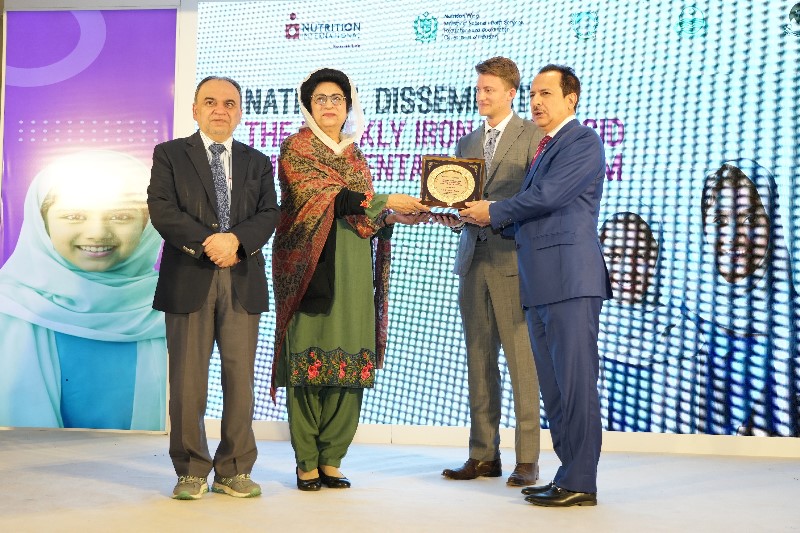ISLAMABAD: Pakistan: Nutrition International has collaborated with the Ministry of National Health Services Regulations and Coordination’s Nutrition Wing, along with the Integrated Reproductive Maternal Newborn, Child Health & Nutrition Program (IRMNCH&N) in Punjab and health and education authorities in Lodhran district. Together, they launched a school-based Weekly Iron Folic Acid Supplementation (WIFAS) program in 50 public sector schools.
The pilot initiative successfully reached over 5000 adolescent girls, providing them with the recommended WIFAS scheme and enhancing their knowledge about nutrition and iron deficiency anemia. Key findings from the endline survey include:
5,253 adolescent girls consumed the recommended WIFAS scheme.
212 health workers and 550 education department staff were trained on anemia prevention and WIFAS supplementation in schools.
A 94% increase in awareness among adolescent girls about WIFAS supplements for preventing anemia.
An 86% increase in the knowledge of adolescent girls about low hemoglobin concentration as a sign of anemia.
Teachers played a significant role in influencing parents’ behavior regarding anemia prevention.
The success of the project was attributed to coordinated efforts among NGOs, the nutrition wing of MoNHSRC, and health and education departments.
Dr. Nadeem Jan, Federal Minister for MoNHSR&C, emphasized the need for a comprehensive integrated Behavior Change Communication Strategy, including family planning, nutrition, maternal & child health, EPI, polio, and other ground-level initiatives. He appreciated the collaborative efforts and tasked his Ministry with forming a special task force on Nutrition.
The Government of Pakistan has developed the Pakistan Adolescent Nutrition Strategy and Operational Plan (2020-2025), which includes WIFAS. Nutrition International initiated the WIFAS pilot project in collaboration with district authorities, aiming to provide technical assistance on nutrition to the government.
Dr. Shabina Raza, Country Director – Pakistan, Nutrition International, highlighted the critical importance of addressing the nutritional needs of adolescent girls in Pakistan, given their significant proportion in the population.
Following the successful pilot, Nutrition International has expanded the program to new districts in Khyber Pakhtunkhwa and Balochistan, with plans to reach at least 60,000 adolescent girls in the next phase (2022-2025).
The Canadian High Commission in Islamabad acknowledged the significance of the WIFAS program and emphasized the priority of health and nutrition in Canada’s international assistance.
The event was attended by various stakeholders, including officials from health and education authorities, underscoring the collaborative efforts to improve the nutrition outcomes of adolescent girls in Pakistan.


